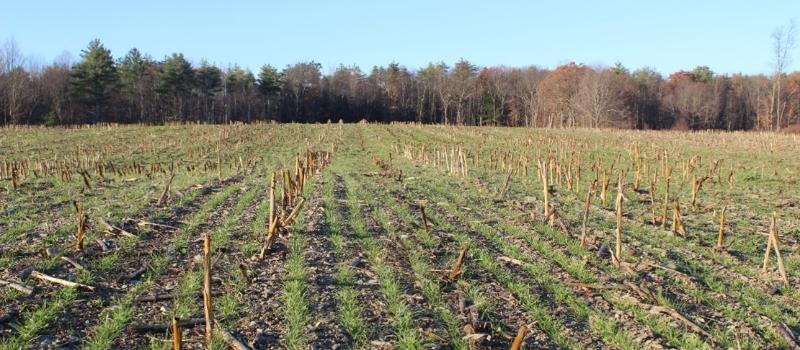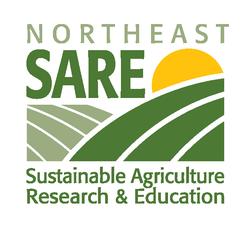
November 17, 2021
Reducing Soil Loss, Building Resilience
THIS YEAR ASA passed the milestone of protecting over 26,000 acres with 150+ easements. The productive farm and forest land is conserved for future generations. But conserving the land is just part of ensuring viable farm enterprises. One of the major challenges facing both established and new farms is dealing with the impacts of changing weather patterns characterized by extended periods of drought or excessive rainfall with periodic extreme weather events. These changes add to the challenge all farmers face in producing the quantity and quality of crops necessary for their business.
Fortunately, there are management practices that can help farmers build resilience to extreme weather. One of the most effective management practices is to incorporate the use of cover crops. For many years farmers have sown winter rye after corn is harvested for silage. The rye can germinate and grow under the low temperature and light conditions of late fall. The roots of the rye hold the soil in place, take up nutrients left over from the crop production and provide valuable organic matter for the soil when incorporated in the spring.
However, if harvest is late, or conditions too wet or cold, it can be difficult to establish the rye. In September 2019, ASA was awarded a Northeast SARE (NESARE) partnership grant to work with three farms (Tiashoke Farm, Otter Creek Farm and Hickory Hill Dairy) to demonstrate the use of interseeded cover crops into silage corn and to measure the changes in soil health. Interseeding allows the cover crop to get established early in the season and can result in a better cover for the soil through the winter months. A public field talk was held in October 2021 at Otter Creek Farm in Johnsonville to spread the word to other farmers on this technique.
Brian Ziehm of Tiashoke Farm has been experimenting with no-till and different cover crop management techniques for many years. He likes having a cover crop in place when spreading manure and sees the benefit in increased soil organic matter, reduced erosion and improved water holding capacity. One of the techniques Ziehm has tried is no-till sowing of corn into a rolled winter rye cover crop. He says it looks rough early in the season but can provide real benefits for the crop and soil.
ASA looks for opportunities to partner with our local Cornell Cooperative Extension educators and the Washington and Rensselaer counties Soil and Water Conservation Districts to provide programs for farmers. In January 2022 we are planning a program for dairy farmers titled "Juggling Cover Crops, Manure and Reduced Tillage" which will feature information from researchers and a panel of farmers to talk about their experience with what works.
Our understanding of how soil organisms interact with plants has grown tremendously in the past several years, and with it, and a better understanding of management practices that can help farmers meet the challenge of climate change. ASA will continue to look for opportunities to bring resources to the farming community to build resiliency and support farm viability.

The Northeast SARE grant is supported by the National Institute of Food and Agriculture, U.S. Department of Agriculture, through the Northeast Sustainable Agriculture Research and Education program under sub-award number ONE19-330.



